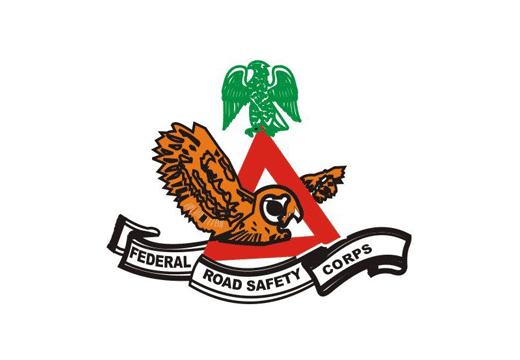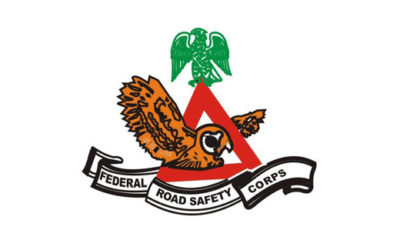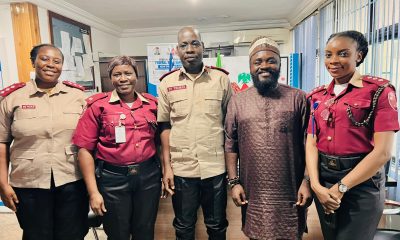society
Analysing Shehu Mohammed’s sagacity and how FRSC emerged best in Website performance barely 4 months as Corps Marshal

Analysing Shehu Mohammed’s sagacity and how FRSC emerged best in Website performance barely 4 months as Corps Marshal
Nigeria is one of the few African countries that has leveraged on some road safety principles and have recorded remarkable progress in road safety administration and management despite a ‘gloomy’ beginning. The road safety situation in Nigeria was so deplorable that the World Health Organisation once described the country as ‘worst in the world to travel on’ only next to Ethiopia.
That narrative changed through government’s efforts by establishing the Federal Road Safety Commission as the Lead Agency to guarantee safety on every centimetre of Nigeria’s expansive road network of 204,000km. This establishment was done ten years prior to United Nations recommendation for all member states to establish agencies directly situated under the central government for ease of unfretted operation.
In its three decades of unbroken services to humanity as a lead agency in traffic and safety management, FRSC has recorded tremendous achievements in the area of Traffic Engineering, Road Safety Administration, Traffic Management and Crash reduction.
The Corps has now come of age after going through good times and tides. Through the use of state of the art Information Technology facilities, the Corps has been able to enhance its operational capacity aimed at promoting public safety and security. Having been propelled by the imperatives of entrenching ease of doing business as well as align with international standards in all fronts, the Corps has successfully designed and operated over 30 web applications for its operational activities so as to create an accessible platform for the general public.
Some of these applications cover, the Uniform Licensing scheme, under which is the ONE DRIVER ONE RECORD which enables FRSC track and match records of drivers with their drivers licence, vehicle number plate, traffic offences and others in a single view.
Introduction of the toll free 122 emergency number and a 24 hours call center established to reduce response time for crash victims; a single step that has reduced emergency response time from 50 minutes to 15 minutes thereby decreasing the number of fatalities in crash situations. More so, the introduction of Verification Portal for drivers licence and number plates, the introduction of the Road Transport Safety Standardisation Scheme (RTSSS) for uniformity and harmonization of fleet operators in the country, the Driving School Standardisation Scheme (DSSP), the introduction of the speed limiting device whose enforcement began on 1st February, 2017, introduction of vehicle and body worn cameras to monitor patrol operations, and the vehicle tracking system among others, are policies formulated and implemented to fight road traffic crash in the country to extinction.
The Corps led that foundation for itself, knowing that the road transportation sector in Nigeria accounts for over 90% of passengers and freight movement, and this exerts undue pressure on the FRSC in discharging its cardinal responsibilities. In view of the growing need to surmount these visible and invisible challenges, the Corps embarked on several reforms which include but not limited to the following: Development of a national road safety strategy roadmap, improved operational efficiency, enhanced regulatory environment, and accelerated response capability to situations that needed immediate actions, amongst others.
Added to the aforementioned, the Corps took a step further, defined it’s path in tandem with UN decade of action as well as the mantra of functional 21st century organization by chatting a path to meet the Accra declaration of 50% reduction in fatality by 2015. That aside, it went all the way to institute modalities to achieve UN decade of action on road Safety of 50% fatality reduction by 2020, and place Nigerian roads within the league of 20 global safest roads by 2020, as well as UN Decade of Action 2021-2030 which aims at having a society where crashes result in no deaths.
To achieve the stated targets, the Corps developed transformational initiatives focused on People, Processes and Technology (PPT). That is why today, not only does its staff pride as the most disciplined, but the Corps stands as the best Information Technology (IT) driven organization in Nigeria with its robust data base and over 95 percentage digitalized administrative and operational procedures. Mm
Having given that background, it is noteworthy to look at how the Corps, under the leadership of the present Corps Marshal, Shehu Mohammed who of course, was amongst members of the group who blazed the trail to set up what is now known as a technology driven organization, emerged the best amongst over 315 MDAs in Website performance and ranking.
It may interest you to know that the 2023-2024 Federal Government Scorecard for ranking Websites of Ministries, Departments and Agencies is an essential benchmark for evaluating the current state of government websites in Nigeria. FRSC’s Website was selected as the best following a very meticulous, highly diligent and extremely objective review of the Websites of 315 MDAs which were subjected to evaluation for the period under consideration.
The Bureau of Public Service Reforms, a Federal Government agency under the Presidency that organised and issued the award on behalf of President Bola Ahmed Tinubu GCFR justified the relevance of the ranking. According to them, the effectiveness and functionality of government websites have become a critical component of Nigeria’s public service reform agenda as the nation increasingly adopts digital platforms as the primary means of communication, service delivery and information dissemination. As such, FRSC’s Website was found to host a huge collection of information about all products and services of the Corps for the consumption of the general public. This feat placed the Corps ahead of its contemporaries in public service.
That said, to unravel the mystery behind how FRSC made it to the top in information technology and eventually emerged best amongst peers, it is important to look at the direction of leadership and policy focus of the administration of Corps Marshal Shehu Mohammed.
The trajectory of his career as a road safety professional from the day he joined the services of the Agency till date are the very factors that have shaped him as an all-rounder in road safety management and administration with a firm and fair handling of goal-oriented affairs as the Corps Marshal.
Upon assumption of office, Shehu Mohammed alongside his team of management, designed and implemented programmes of action, as well as a proactive template to advance the growth of the Corps in all ramifications, with the aim of trending down road crashes and fatality rate.
Being a believer of technology, the Corps Marshal made the digitisation of FRSC operations a cardinal part of his policy thrust. To that end, he took a bold step that was the first of its kind since the establishment of the Corps, by appointing a Technical Adviser who will mount the wheels that would eventually bring FRSC to speed in the deployment of information technology in the work place. This placement of round pegs in round holes was the catalyst, the propellant force, as well as the icing on the cake that catapulted the Corps to more enviable heights and achievements in digitisation.
Retrospectively, Corps Marshal Shehu Mohammed has been an integral part of the digitalization process and has driven the technology feat of this noble organization for years now, beginning from Corps Marshal Osita Chidoka who started the revolution to the erstwhile Corps Marshal, Dr. Boboye Oyeyemi who sustained the expertise, through to the immediate past Corps Marshal, Dauda Ali Biu who kept the momentum.
To say the least, his experience has seen the Corps measure to billing as he is already on the glorious path of unravelling the mystery that would finally bring about the overall digitisation of FRSC operations.
Additionally, just as stated in my last piece, part of the major initiatives introduced by Corps Marshal Shehu Mohammed that brought about the needed result for the Corps, is the ongoing digital revolution.
The introduction of Electronic Document Management System ( Paperless) in the workplace would surely make FRSC the first Federal Government Agency to go paperless. This initiative, apart from the speed it will bring to the workplace, will also enhance ease of doing business and bring down the cost of governance. In the same vein, adequate progress is being recorded on the operational front too, he, Shehu Mohammed has gone a step further by initiating and launching the first FRSC Mobile Application, a one-stop shop for all FRSC products and services, for quality service delivery. The FRSC Mobile App was introduced to generate and analyse real-time data on operations, Traffic Crashes data management, and road conditions, and provide customers with feedback on the Corps’ products.
The introduction of the National Crash Information Recording System portal (NACRIS) is another ground breaking robust data collation initiative that will help in policy formulation, planning, and education. With this portal, Nigerians could easily report cases of crashes from the point of crash. This initiative will boost data legitimacy and change global perception of FRSC crash data reports for good.
The Corps under his purposeful leadership, has proven to be right on track to allay the menace of road traffic crashes on Nigerian roads and usher in a season where there would be no crashes; where even if crashes will occur, it would not result in the death of any Nigerian. Achievements of such would be recorded based on many pillars and strict implementation of his policy thrust fused in the Corporate Strategic goals of the Corps.
To this end, suffice it to state that as a performance driven organization, with clearly set measurable Key performance Indicators, FRSC is today, the only law enforcement organization in Nigeria certified by the International Standard Organization.
Bisi Kazeem, a veteran road safety professional and a public relations expert, writes from Lagos, Nigeria.
news
Journalists for Good Governance Shines Searchlight on Local Government Administration

Journalists for Good Governance Shines Searchlight on Local Government Administration
…Calls for Accountability in Nigeria’s Grassroots Governance
LAGOS, Nigeria — A civil society coalition known as Journalists for Good Governance(JGG) has intensified public debate on transparency and accountability within Nigeria’s local government system, urging media professionals, civil society actors, and citizens to hold grassroots leaders accountable.
Speaking an event in Lagos recently, the acting chairman of the society, Comrade Bunmi Obarotimi said that despite reforms such as the Supreme Court’s 2024 ruling granting financial autonomy to all 774 Local Government Areas (LGAs), systemic challenges continues to hinder effective service delivery and responsible stewardship of public funds.
“Local governments are the closest tier of government to the people — yet too often they remain the least transparent. Without civic oversight and vibrant media, promises of autonomy ring hollow.” the acting chairman said.
The Journalist for Good Governance emphasised crucial roles that journalists can play in uncovering discrepancies in council spending, flagging poor service delivery, and educating citizens on their rights. Their call comes amid wider efforts by media and civic organisations to bridge accountability gaps. The civil society initiatives had previously launched monitoring campaigns to track local government expenditures and have been quietly advocating for transparency in how public money is deployed.
The leaders of the Journalists for Good Governance (JGG) highlighted the importance of physical assessment and citizens engagement on projects to boost people’s confidence, urging local councils to adopt open data platforms and proactive information dissemination in compliance with the Freedom of Information Act. Experts say the majority of LGAs currently lack operational websites or digital portals, further limiting public scrutiny.
The Journalists for Good Governance initiative aligns with sustained advocacy by civil society groups and governance experts calling for a collective approach to strengthening democratic accountability, and has decided to engage in critical and holistic assessments of how Local Governments is being run and the impact and quality of projects they embark-on and to address deficits in transparency and public trust.
Meanwhile, some state governments have signalled support for improved community engagement. In Lagos State, authorities reiterated a commitment to enhancing community media platforms as vehicles for civic participation and accountability at the grassroots level.
The renewed spotlight on local government administration has reignited public debate over fiscal responsibility and priorities. Controversies such as the widely criticised Adamawa council chairmen’s wives trip to Istanbul — which drew public outrage for perceived misuse of public funds — underscore why watchdog groups say stronger oversight mechanisms are urgently needed at the grassroots.
Citizens and activists have welcomed the journalists’ initiative, calling for sustained media engagement that goes beyond headlines to influence policy and accountability reform.
The civic rights advocates note that real change will require robust legal frameworks, a free press, and empowered communities equipped to demand transparency at every level of governance.
As Journalists for Good Governance mobilises its members, the coming months are likely to see heightened media attention on grassroots administration — from council budgets and service delivery to the enforcement of public information laws and digital transparency initiatives.
society
Good Politics Or Just Power? Two Years After The Elections

Good Politics Or Just Power? Two Years After The Elections
Two years after the last general election, Nigerians are justified in asking a direct question: is our democracy stronger today than it was then? Democracy is not measured by how many offices a party controls or how loudly politicians speak. It is measured by integrity, accountability, and the lived experience of the people. Good Politics demands more than victory at the polls; it demands moral leadership and visible progress in the lives of citizens.
The debate over amendments to the Electoral Act should have provided an opportunity to deepen transparency and strengthen public confidence. Instead, hesitation to fully embrace reforms that safeguard credible vote transmission and accountability has fueled doubt. In a nation where electoral credibility remains fragile, any reluctance to reinforce safeguards sends the wrong signal. Good Politics stands firmly for processes that are open, fair, and beyond suspicion.
The party in power commands significant authority across the federation. With control of the presidency, many state governments, a strong presence in the National Assembly, and influence at local levels, there should be no anxiety about reforms that ensure free and fair elections. Confidence in leadership is demonstrated not by dominance, but by a willingness to subject power to scrutiny. Politics rooted in the omoluabi ethos embraces fairness, transparency, and responsibility, even when inconvenient.
This is the standard long associated with Awolowo, whose politics emphasized discipline, social welfare, education, and institutional strength. His vision was not merely about holding office, but about transforming society through principled governance. Good Politics follows that tradition. It rejects manipulation, arrogance, and the concentration of power without accountability. It insists that authority must serve the people, not itself.
Beyond electoral reforms, democracy must deliver tangible relief. Across the country, households struggle with rising prices and shrinking purchasing power. Small businesses are burdened by escalating costs. Young people search for opportunities that remain scarce. When economic hardship deepens, democracy feels abstract. Good Politics recognizes that political legitimacy is reinforced when citizens can see and feel the benefits of governance.
The concentration of power within a single political structure should translate into coordinated reform and measurable development. When it does not, questions naturally arise. Democracy weakens when dominance replaces performance. It weakens when loyalty to party eclipses loyalty to principle. The omoluabi tradition teaches that character defines leadership. Without character, authority becomes hollow.
A healthy democracy requires credible elections and compassionate governance. It requires leaders who understand that politics is a moral enterprise. Two years into this administration, many Nigerians remain uncertain about the direction of both our democratic processes and their daily welfare. If democracy is to endure, it must reflect Good Politics: fairness in competition, integrity in conduct, and compassion in governance. Anything less falls short of the standard that our history and our values demand.
news
GEN CHRISTOPHER GWABIN MUSA SUPPORT INITIATIVE COMMENDS STATE-FEDERAL COLLABORATION IN ZAMFARA

GEN CHRISTOPHER GWABIN MUSA SUPPORT INITIATIVE COMMENDS STATE-FEDERAL COLLABORATION IN ZAMFARA
The Gen Christopher Gwabin Musa Support Initiative (GCGMSI) has commended the Zamfara State Government for its decisive contribution to security operations through the donation of newly acquired armoured personnel carriers (APCs), surveillance drones, and other critical operational equipment to troops and security agencies in the state.
This commendation was contained in a statement signed by the Convener of the GCGMSI, Ibrahim Dahiru Danfulani, Sadaukin Garkuwan Keffi/Betara Biu, and made available to the press.
The equipment was formally commissioned on Wednesday, February 18, by the Grand Patron of the GCGMSI and Minister of Defence, General Christopher Gwabin Musa, OFR (rtd.), in a ceremony at the Government House, Gusau. The event was attended by senior military officers, heads of security agencies, and top officials of the Zamfara State Government.
The GCGMSI, in its statement, hailed the donation as a “transformative and timely intervention” that aligns perfectly with its core objective of advocating for and supporting tangible measures that enhance the operational capacity and welfare of Nigeria’s security forces. The Initiative praised Governor Dauda Lawal’s administration for moving beyond rhetoric to actionable, material support, describing the move as a “blueprint for state-level collaboration in national security.”
“The provision of these assets by the Zamfara State Government is a testament to visionary leadership and a profound commitment to the peace and stability of its people,” the GCGMSI statement read. “It represents the exact kind of synergistic partnership between state and federal authorities that the GCGMSI champions. This initiative will significantly close operational gaps, boost the confidence of our gallant troops, and send a strong message to criminal elements.”
Speaking at the commissioning, General Musa emphasized that sustained collaboration is indispensable in confronting the nation’s evolving security challenges. He specifically commended Governor Lawal for his proactive support.
“Governor Dauda Lawal has demonstrated exemplary leadership and an unwavering dedication to the security of Zamfara State,” the Defence Minister stated. “The provision of these armoured vehicles, surveillance drones, and other operational equipment will undoubtedly boost the morale and operational effectiveness of our troops and other security agencies on the ground. This is a commendable effort that should be emulated by others.”
The newly commissioned assets, which include multiple APCs and advanced surveillance drones, are expected to dramatically enhance the mobility, protection, intelligence-gathering, and rapid response capabilities of security forces, particularly in the state’s remote and difficult terrains where anti-banditry operations are ongoing.
In his remarks, Governor Lawal reiterated his administration’s steadfast commitment to being a reliable partner in the security architecture. He urged security agencies to deploy the new resources responsibly and effectively to safeguard lives and property.
The Federal Government, through the Ministry of Defence, reaffirmed its commitment to continuing and deepening such partnerships with state governments across the nation to strengthen coordination and resource allocation in the collective fight against insecurity.
The GCGMSI concluded its statement by urging other state governments to take a cue from Zamfara’s “bold and pragmatic” approach, affirming that such concrete support is vital for achieving lasting peace and security across Nigeria.
-

 celebrity radar - gossips6 months ago
celebrity radar - gossips6 months agoWhy Babangida’s Hilltop Home Became Nigeria’s Political “Mecca”
-

 society6 months ago
society6 months agoPower is a Loan, Not a Possession: The Sacred Duty of Planting People
-

 society5 months ago
society5 months agoReligion: Africa’s Oldest Weapon of Enslavement and the Forgotten Truth
-

 news6 months ago
news6 months agoTHE APPOINTMENT OF WASIU AYINDE BY THE FEDERAL GOVERNMENT AS AN AMBASSADOR SOUNDS EMBARRASSING








